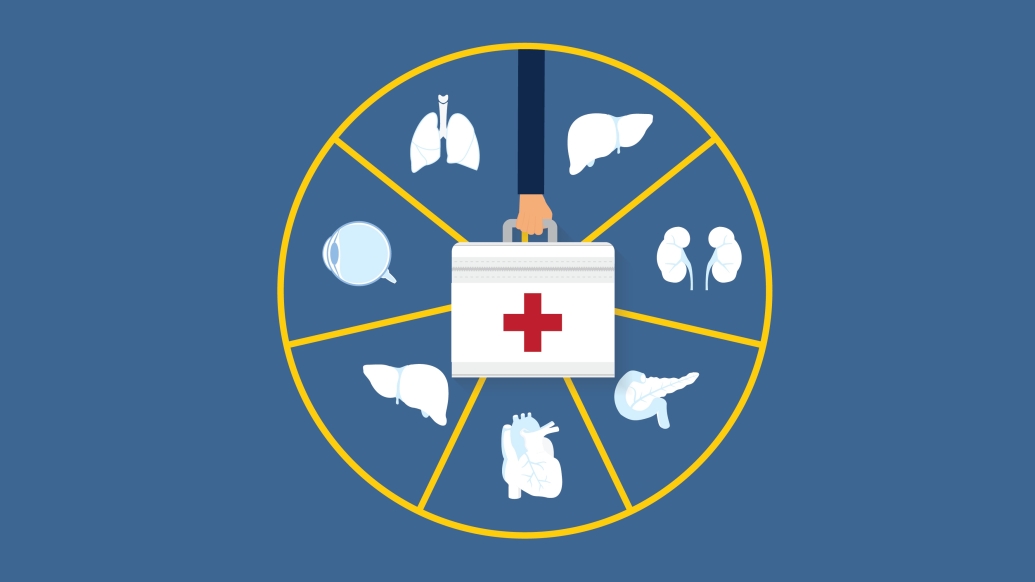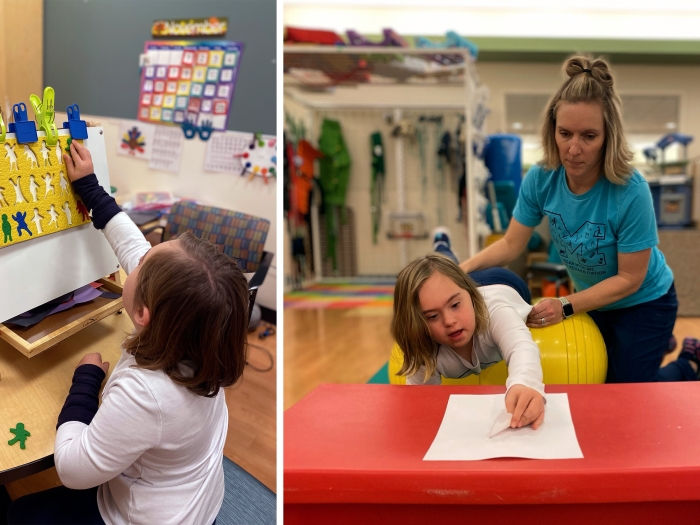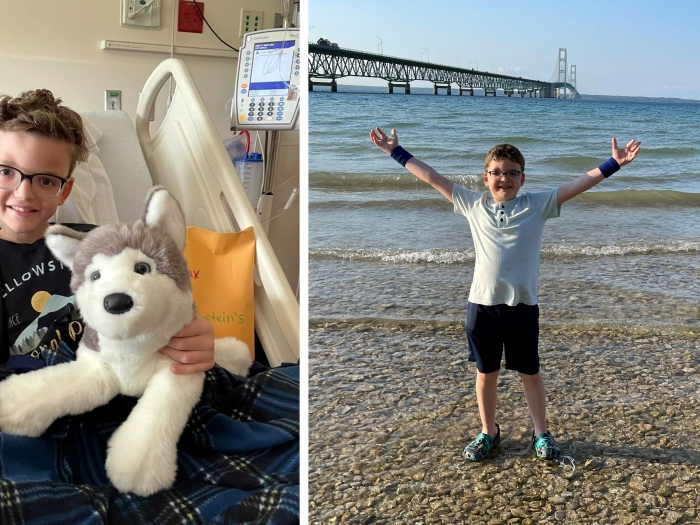A child’s history of following a health regimen is a good indicator of his or her likelihood to take important medicines after an organ transplant. Pediatric psychologists often supply an extra push.
2:29 PM
Author |

When Jay needed a kidney transplant, the 17-year-old faced an uphill personal battle. Despite taking medications and attending dialysis as directed, he struggled to limit fluid intake as recommended.
That, over time, led Jay's medical team and family to question if he was ready to safely receive and care for a transplanted organ. How, the team asked, could it better steer the adolescent toward improved treatment adherence so that he might respond well to the lifesaving surgery and follow directives going forward?
The situation isn't uncommon.
About 50 to 65 percent of youths do not properly take their immunosuppressant medicines after receiving a solid organ transplant — a rate nearly four times higher than that of adults, according to Melissa Cousino, Ph.D., an assistant professor of pediatrics and a pediatric psychologist with the transplant program at C.S. Mott Children's Hospital.
Cousino knows adherence to the treatment regimen is critical to long-term outcomes. More than one-third of graft failures in young transplant patients are the result of nonadherence to medicine that helps thwart rejection.
"Which is why we focus so much in the pretransplant phase on promoting adherence and independent health-related self-management skills," says Cousino, who wrote about her experience treating Jay in an article published in March in Clinical Practice in Pediatric Psychology.
For individuals such as Jay, pediatric psychologists can play a pivotal role in assessing barriers to adherence and providing necessary interventions.
Says Cousino: "We work with young patients and their teams to help them be successful — so that when they do receive the gift of life, they can keep the donated organ for a long time."
We work with young patients and their teams to help them be successful — so that when they do receive the gift of life, they can keep the donated organ for a long time.Melissa Cousino, Ph.D.
Building a foundation
At Mott, pediatric psychologists Cousino and Emily Fredericks, Ph.D., work with transplant patients as part of a larger treatment team when a child first arrives for care.
"Patients and families meet with us from the beginning as opposed to getting sent to us after a problem arises," says Cousino. "We're able to really develop a relationship with patients and families, which allows them to seek support throughout the transplant process."
That support can be particularly beneficial for low-income families that might struggle to obtain counseling elsewhere, or for patients with learning disabilities in need of extra guidance. (Jay, whose name was changed in the case study to protect his privacy, faced both of those challenges.)
Psychological help, however, can aid children of any background in preparing for the stressful prospect of transplant surgery and the required, complex post-transplant routine.
A personalized approach also helps tackle the issues of forgetfulness, feelings of being different from peers, busy adolescent schedules and irregular sleep patterns (immunosuppressant medicines are typically taken twice daily at the same times) that often put youths at a greater risk for missing medications.
Socially and mentally, "many teenagers and children haven't developed all of the cognitive skills required to manage a complex treatment regimen post-transplant," says Cousino, who typically consults with patients weekly or monthly after their surgeries. Parents, of course, play a vital role. "We do work closely with parents and youth to determine appropriate level of independent responsibility for medical management."
Ethical challenges
Even with a pediatric psychologist as part of a larger game plan, adherence can remain a challenge.
And it could present specialists with the question: When — or should — a young patient receive a transplant given the life-threatening risks of nonadherence?
That can present a tough ethical quandary.
There aren't national standards to guide those decisions. This suggests a need for clear, nationwide protocols to guide decision-making and avoid any potential bias based on a patient's race, income or level of cognitive function (research, Cousino says, has proved that those with such limitations fare no differently than their typical peers in transplant cases and even see greater gains as a result).
Collective evaluation remains key.
"The decision is not made simply by a psychologist or director of a transplant program; it's made as a team," Cousino says. "We think really carefully because we know that nonadherence could impact their safety or long-term health. We have a duty to our patients, the donor family and all children waiting for an organ throughout the country."
But adherence shouldn't be the deciding factor.
Jay, as Cousino wrote, wasn't able to get his fluid intake under control despite two years of counseling. Based on his other proactive signs toward wellness, however, she and other doctors ultimately decided that he was ready to receive a kidney transplant.
The surgery, despite past obstacles, was a success. Jay has since followed his new medical regimen and attended follow-up appointments with mental-health professionals.
"I think that this case really highlights some of the complicated psychosocial issues that our young patients face," says Cousino, "and the important role of psychologists in helping medical teams, patients and families achieve optimal heath."
Cousino and Fredericks both have ongoing grant-funded research studies related to promoting adherence in pediatric solid organ transplant populations.

Explore a variety of healthcare news & stories by visiting the Health Lab home page for more articles.

Department of Communication at Michigan Medicine
Want top health & research news weekly? Sign up for Health Lab’s newsletters today!





